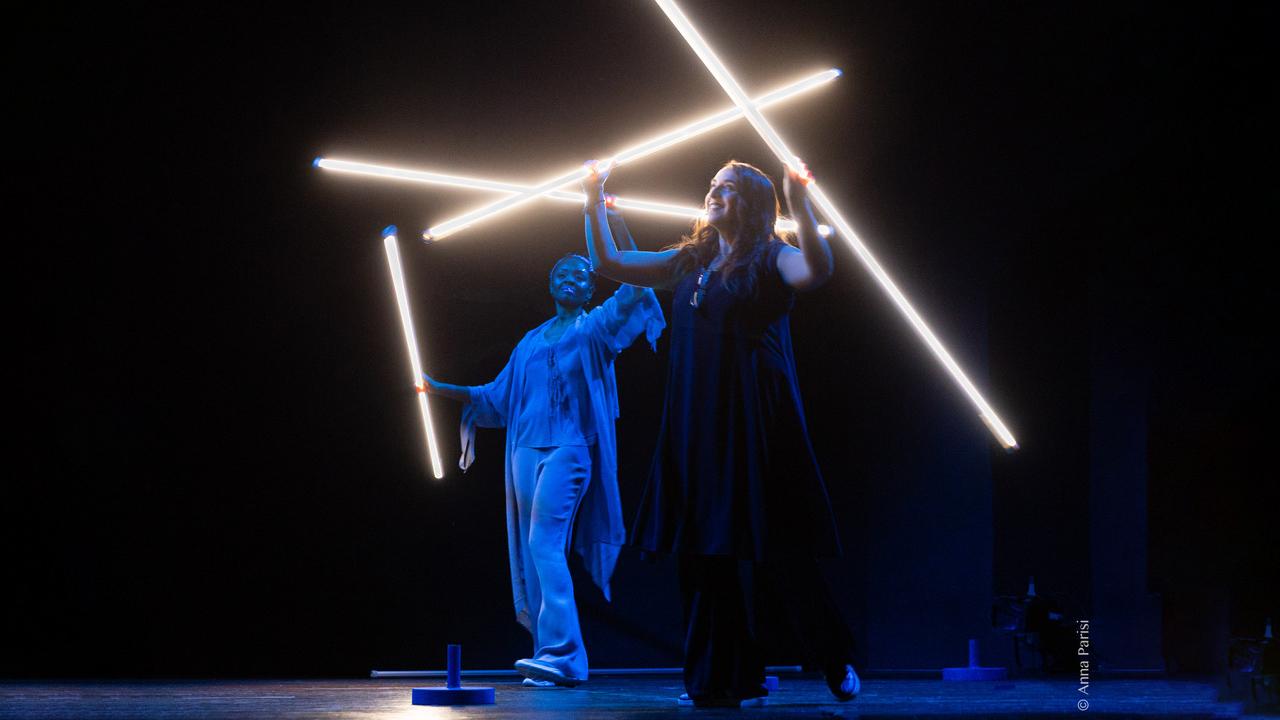
© Anna Parisi
On the International Day of Women and Girls in Science, ICTP and the Trieste Section of the Italian National Institute of Nuclear Physics (INFN) are organizing a public event based on the play "The Hidden Force", which offers an overview of 20th-century physics through the eyes of four of its female protagonists.
Join us on 11 February at 18.00 hrs at Teatro Miela, in Trieste, for a theatrical experience combining science and art.
Attendance is free, but seating is limited and must be reserved ahead of the event at this link. The performance will be in Italian, with English subtitles.
The play will be followed by a Q&A session with the actresses and the director of the play.
The Hidden Force
The Hidden Force is a play that highlights the contributions of women to fundamental physics through the poetic storytelling of the life and work of four significant but only partly recognized scientists of the 20th century: the American astronomer Vera Rubin, the Austrian nuclear physicist Marietta Blau, the Chinese particle physicist Chien-Shiung Wu, and the Italian physicist Milla Baldo Ceolin. Their stories are intertwined with radical social and historical changes in an international context characterized by great upheaval but also by the birth of modern physics and institutions like INFN, ICTP and CERN.
The play was conceived, written, and produced by a group of physicists at the Turin Division of INFN and the Department of Physics of Turin University (Anna Ceresole, Nora De Marco, Simonetta Marcello, and Nadia Pastrone) as a result of their collaboration with a women’s historian (Emiliana Losma), an expert in new technologies (Rita Spada), and a group of theatre artists: Elena Ruzza (actress, drama, Terra Terra Association) and Gabriella Bordin (playwright, director, Alma Teatro). On stage, alongside the actress, soprano Fé Avouglan acts and performs various musical pieces, accompanied by live pianist Gabriele Braga.
The International Day of Women and Girls in Science
The International Day of Women and Girls in Science is celebrated every year on 11 February. This date was chosen by the United Nations General Assembly and adopted in 2015 to promote equal access to Science, Technology, Engineering and Mathematics (STEM) disciplines to women and girls worldwide. According to the United Nations, despite a shortage of skills in most technological fields, women still account for only 28% of engineering graduates and 40% of graduates in computer science and informatics. Women are typically given smaller research grants than their male colleagues and, while they represent 33.3% of all researchers, only 12% of members of national science academies are women. Female researchers tend to have shorter, less well-paid careers. Their work is underrepresented in high-profile journals and they are often passed over for promotion.
















